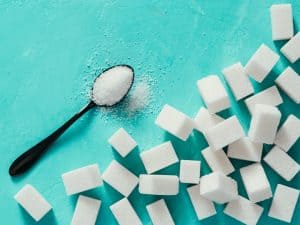 Dentists and doctors alike have been warning about the dangers of sugar for decades. In large quantities, sugar is harmful to the entire body and is also one of the main drivers behind tooth decay. Now, more than ever, it is time to start being more responsible with our sugar intake, not only for ourselves, but for the sake of our families.
Dentists and doctors alike have been warning about the dangers of sugar for decades. In large quantities, sugar is harmful to the entire body and is also one of the main drivers behind tooth decay. Now, more than ever, it is time to start being more responsible with our sugar intake, not only for ourselves, but for the sake of our families.
However, for many individuals, it is hard to reduce sugar intake as western diets incorporate more and more sugar into food and drink. It also does not help that sugar is incredibly addictive, comparable to the addiction mechanisms of some narcotics.
However, knowledge about precisely how sugar can affect your health will assist in reducing the impulse to give into a sugar craving, or at least allow the substitution of something less harmful, thereby helping to heal any damage.
Here is an overview of sugar’s harmful effects.
How Does Sugar Affect Teeth?
Sugar does not necessarily corrode the teeth on impact. However, sugar is a food source for the bacteria that forms dental plaque. Plaque is an aggregation of many different forms of bacteria and provides a hospitable environment for bacteria to grow directly on the teeth. Furthermore, sugar is processed by bacteria to act as a sort of glue that helps the bacteria to stick to teeth more readily.
The majority of bacteria are harmful, whilst those in the mouth alter the pH balance by producing acids as they convert sugar into energy. This process is disastrous for the enamel on teeth, which is the protective layer that prevents damage to the more sensitive internal components.
As this protective layer is eroded, teeth and gums become much more susceptible to cavities. Cavities are holes in the teeth that can lead to painful infections of the nerve-rich dental pulp. Similarly, poor dental hygiene can also lead to several other painful gum and tooth infections such as periodontitis.
It does not stop there though, as the intimately connected network of the ears, nose and throat can also become susceptible to infection.
The mouth can act as a facilitator for the growth of several harmful bacteria. This bacteria can quickly growth if you eat a high-sugar diet.
Enamel loss is evident when teeth become particularly sensitive to temperature and take on a distinctively yellow or grey hue. Chips and cracks may become apparent also, but these can be remedied with good dental hygiene and cosmetic surgery.
What Else Does Sugar Do?
Sugars, such as fructose in particular, are implicated in a range of other debilitating diseases. The risk of developing conditions such as fatty liver, cancer and alzheimer’s disease are vastly increased by having a sugar-rich diet. As mentioned above, sugar is also potently addictive which makes it that much harder to break the cycle of dependence.
How Can You Reduce Your Sugar Intake?
Here are some simple steps that you can take today to save your smile and reduce your sugar intake:
- Remove added sugar, in all forms, from your grocery list and the house. This includes processed sugar (the kind that you put into tea and coffee), honey, syrups and cordials
- Reduce consumption of foods high in added sugar. This includes cereals, white breads, and ice creams. Replace these foods with low sugar alternatives
- Avoid soft drinks. Soft drinks contain high amounts of sugar (a 375ml can of coke contains nearly 75% of the daily recommended sugar intake) and are also naturally acidic and further erode teeth. Various teas work well as great substitutes
- Replace sugary foods with fresh fruit and vegetables, which contain natural sugars that are more easily and healthily digested
- Reduce the sugar recommendations found in recipes to half or even less. Often recipes originating in North America include recommended amounts of added sugar that are much higher than necessary, reflecting a general culturally high sugar consumption
- Use non-sugar based sweeteners to help wean yourself and your family off sugar
How Can You Repair The Damage?
Thankfully, it is possible to reverse the damage to your teeth.
The first step in saving your teeth is to have a consistent and regular appointment with your dentist in order to identify problems before they become dangerous and irreversible.
Maintaining good oral hygiene is also a must. This entails brushing your teeth regularly, at a minimum of twice a day, and if you are able, after all meal times. Similarly, this should be accompanied with thorough flossing (which must be done at a minimum of every day). Dentists can even recommend specialised toothpastes and equipment to assist.
Lastly, it has been suggested by some recent research that dairy products, such as cheese and milk, may have some potent anti-cavity properties. It is thought that dairy products raise the pH balance in the mouth, whilst also being rich in minerals such as calcium and phosphates, that are critical to enamel production. There are specific dental products that are high in calcium and phosphates as well, e.g. Tooth Mousse, which has proven anti-decay properties. These products are only available at your dentist’s office for purchase.
To learn more about how you can save your teeth and improve your dental health, get in contact with dentists in Camberwell.
